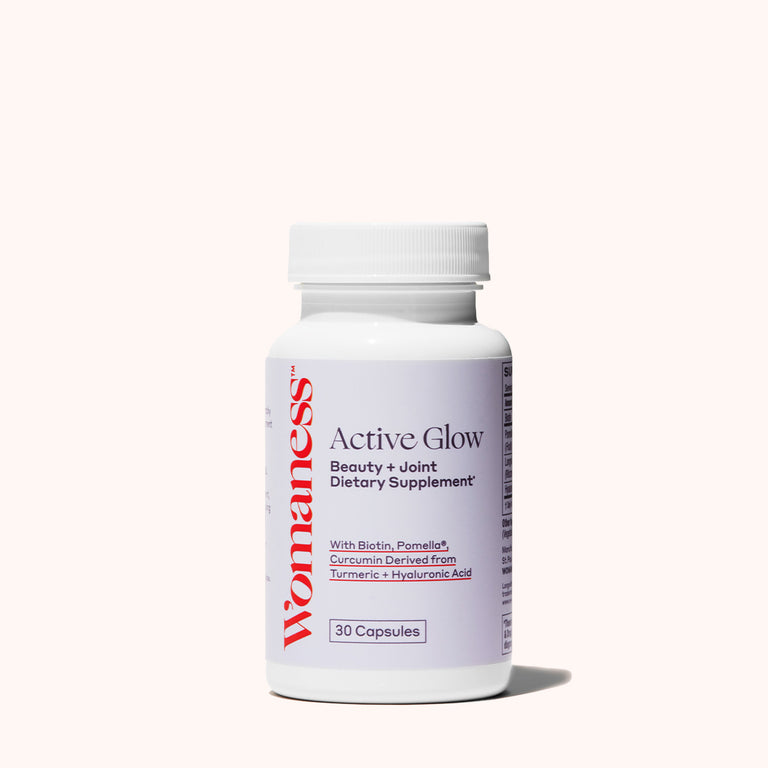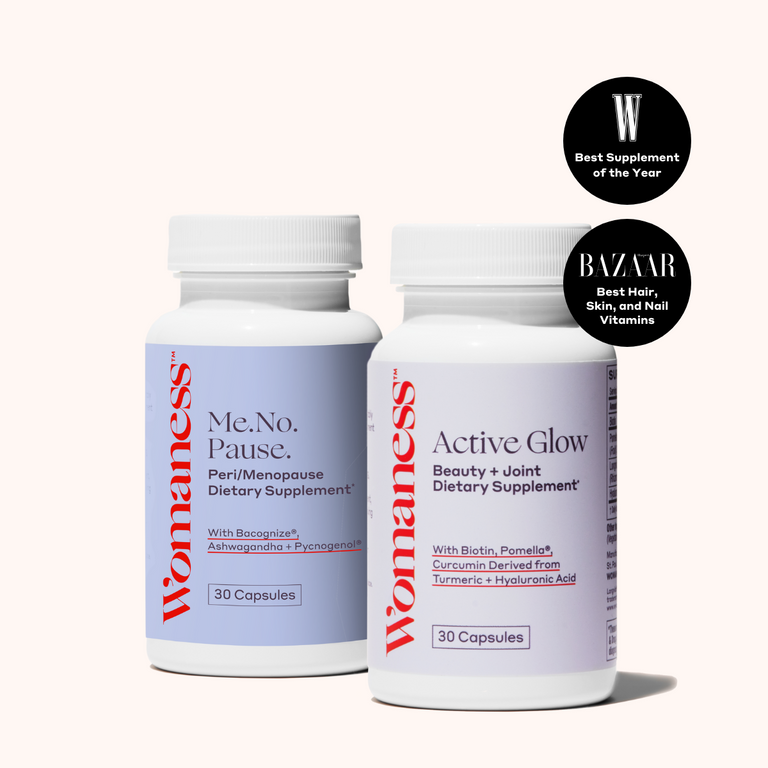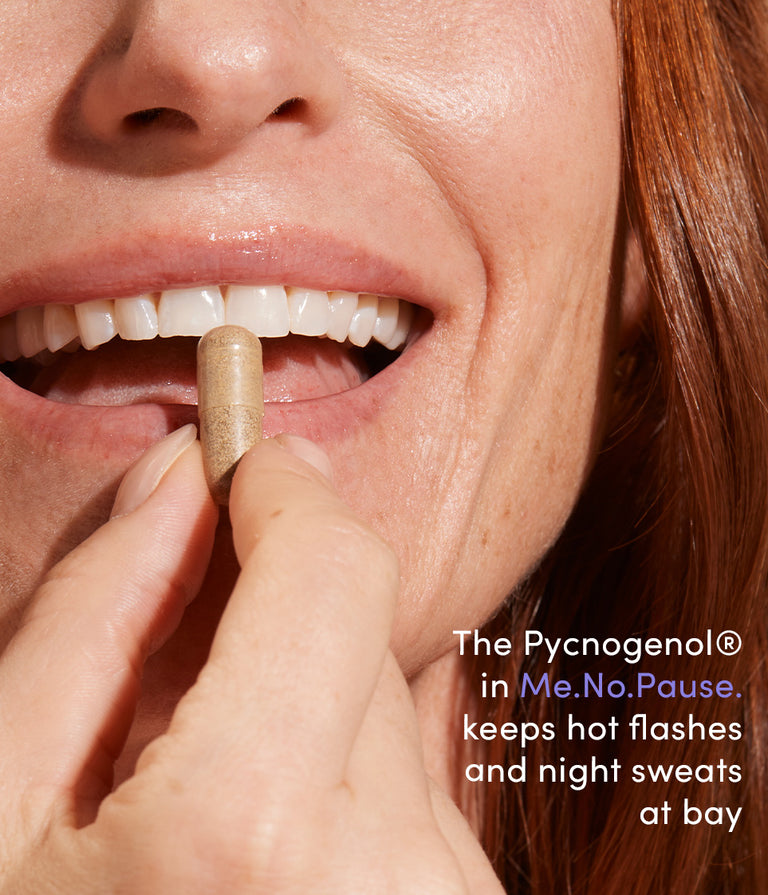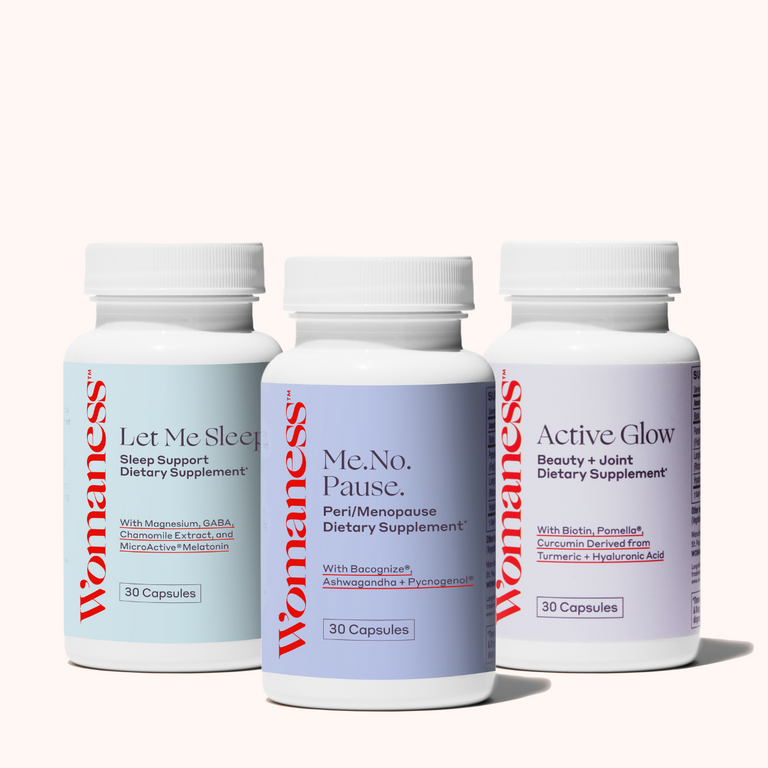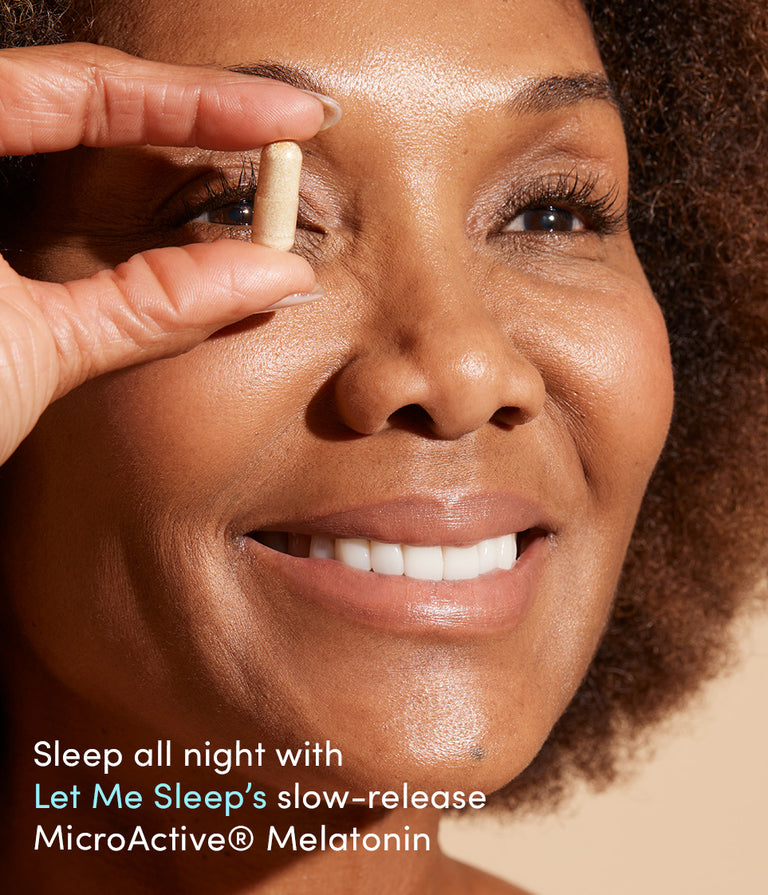By Collective Labs Editors 5-Minute Read

Dihydrotestosterone, or DHT, is a sex hormone and derivative of testosterone that is an important component of hair growth. But too much of it can block follicles and eventually cause your hair to diminish. Both males and females have DHT in their bodies, and both sexes can suffer from hair loss from having high levels of DHT or a sensitivity to DHT.
That said, when building a regimen for healthy hair growth, it is important to use products and supplements that are formulated with DHT blockers. You can even go one step further: adding natural DHT blockers to the foods in your diet.
In this article, we will discuss eight vitamins that focus on blocking, decreasing, or reducing your body’s sensitivity to DHT. Like all hair growth methods, adding these supplements to your routine will not magically promote new hair growth overnight. It takes a consistent routine of healthy eating, stress management, and a topical regimen to promote a healthy scalp and new hair growth.
Vitamin B9 and Folic Acid
Vitamin B9 is found in two forms: folate and folic acid. The difference? Folate is the naturally occurring form found in foods, while folic acid is the synthetic version often used in supplements.
This essential nutrient is vital in cell growth and DNA development, which is why it’s frequently taken as a supplement for pregnant women. In addition to considering a supplement, the following foods are excellent sources of vitamin B9:
-
Spinach and romaine lettuce
-
Collard, turnip, and mustard greens
-
Citrus like grapefruit and oranges
-
Raspberries and strawberries
-
Lentils and beans
-
Liver
-
Squash
-
Beets
Studies have found that vitamin B9 and its functionality in DNA repair proves essential for many biochemical processes. Hair growth falls under this umbrella, making vitamin B9 good for hair and excellent for blocking DHT.
Zinc and Selenium
Though there are many causes for hair thinning, a zinc and selenium deficiency could be one of them. Zinc and selenium work together as powerful antioxidants and play many key roles in bodily functions, including:
-
Boosting your immune system
-
Promoting quicker healing
-
Helping to prevent hair loss
-
Improve the health of skin and slow down signs of aging
Zinc works to balance hormone levels and limits DHT production by inhibiting the enzyme 5 alpha-reductase which plays a role in producing DHT. Zinc has anti-inflammatory properties and promotes cell division, a key factor in maintaining scalp health. Here are some foods to consider adding to your diet for a boost in zinc and selenium:
-
Red meats and oysters
-
Egg yolks
-
Almonds
-
Products containing soy
The right amount of zinc and selenium in your diet will keep your oil glands and follicles healthy and functioning.
Biotin
B vitamins are known for their positive impact on hair health, and biotin is a well-known B7 vitamin commonly used to boost hair health. Biotin works by aiding amino acids in the production of keratin. Keratin is a widely-used hair treatment that improves overall hair health, quality, and strength.
Many people take biotin for the sole purpose of growing their hair longer and faster. While biotin may not actually speed up hair growth, it can strengthen the individual strands to prevent them from breaking. Less breakage means your hair has the opportunity to grow longer.
Start by including biotin-rich foods like:
-
Beef, liver, salmon, and pork chops
-
Egg yolks
-
Seeds and nuts (like sunflower seeds)
-
Sweet potatoes
-
Bananas
-
Broccoli
-
Avocado
If you want the full effects of biotin, pair it with other vitamins and minerals. Biotin on its own may not strong enough to prevent hair thinning, as some individuals may have too much DHT that biotin can’t fight off alone.
Niacin, aka Vitamin B3
Niacin, or vitamin B3, is a nutrient frequently used for cosmetic purposes, though it is vital to maintain a healthy, balanced lifestyle. While one study highlights the benefits offered for hair growth, it can also have positive impacts on your skin in terms of aging, as well as your eyes.
Not only does niacin promote healthy blood flow in the scalp, which is good for your follicles and blocks the effects of DHT, but it also works well with other nutrients such as biotin, making both of them more effective for healthier hair. Vitamin B3 is found in these food sources:
-
Red meat, poultry, fish
-
Brown rice
-
Nuts and seeds
-
Bananas
Green Tea
Green tea is rich in antioxidants which help fight free radicals, detoxify the body, support brain function, and contribute to healthy skin and robust hair growth.
The EGCG antioxidant found in green tea has been shown to inhibit some of the hormones that cause hair loss, especially DHT. Green tea also works to stimulate hair follicles and encourage new hair growth, specifically by preventing damage to skin and hair cells.
You can add green tea to your diet by drinking a cup or two a day or by taking green tea supplements.
Vitamin A
Vitamin A is a crucial component of overall cell health in the human body. And because hair is the tissue that grows the fastest, it’s obvious that vitamin A is necessary for healthy hair.
In fact, a vitamin A deficiency can cause hair thinning. At the same time, too much vitamin A can lead to the same results.
To maintain a healthy balance of vitamin A, add foods that have it naturally, such as:
-
Sweet potatoes
-
Pumpkins
-
Spinach
-
Also prevalent in milk, eggs, and yogurt
Magnesium
Several vitamins and minerals are essential for quality hair growth, but magnesium is one that drives the health of hair follicles, which is where it all starts. A healthy scalp is crucial to healthy hair, so it’s important to pay attention to the things that can improve scalp and follicle health.
While an excess of DHT can result in blocked follicles and poor scalp health, magnesium works in the opposite way to support follicle activity. It can also combat the effects of stress, which can play a huge role in hair loss.
Many Americans don’t get enough magnesium in their diets. Magnesium-rich foods that are easy to add to our diet include:
-
Nuts (almonds, cashews, brazil nuts)
-
Avocados
-
Dark chocolate
-
Leafy greens
Collagen
Collagen is made up of three amino acids: proline, glycine, and hydroxyproline. Proline is associated with keratin, hair’s fundamental building block. By introducing these key amino acids, you are directly supporting the hair follicle...encouraging stronger hair to grow.
Our bodies naturally decrease collagen production around the age of 25. The slowed production of collagen can lead to signs of aging, like wrinkles, joint pain, and hair thinning.
You can add supplemental collagen to your diet through supplements, powders, and bone broth.
Some final thoughts...
Depending on your body chemistry, some vitamins might work better than others for your hair health. Before starting any supplement, it’s always a good idea to check with a doctor to understand your vitamin deficiencies and to discuss any potential side effects.
Get More Answers
Ask an OB/GYN: "How can I protect my hair as I age?"
What's Happening Here? Changes in Skin, Hair, & Nails
Why Now is the Time for Biotin

